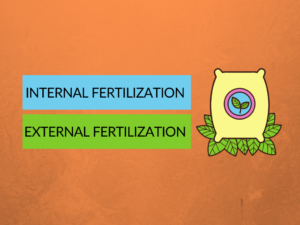IVF Vs. ICSI: Understanding the Basic Differences
Infertility is a significant problem worldwide, which affects about 10-15% of couples of reproductive age. In vitro fertilization (IVF) and intracytoplasmic sperm injection (ICSI) are two different techniques commonly used to treat infertility. Both techniques are similar in some ways but are different in others. As a patient, it is essential to understand the basic differences between IVF and ICSI to make informed decisions about your treatment. This article will help you understand the differences between IVF and ICSI and how they are used.
What is IVF?
IVF stands for in vitro fertilization, which is a type of assisted reproductive technology (ART) that involves retrieving eggs from a woman’s ovaries and mixing them with sperm in a laboratory dish. This process aims to achieve fertilization and create embryos that can be implanted in the woman’s uterus. The success rate of IVF varies depending on different factors like age, fertility problems, previous pregnancies, and other medical conditions.
Uses of IVF
Some of the common reasons why people undergo IVF include:
- Blocked or damaged fallopian tubes
- Male infertility issues, such as low sperm count or poor sperm motility
- Unexplained fertility problems
- Endometriosis
- Polycystic ovary syndrome (PCOS)
- Advanced maternal age
- Recurrent miscarriages
What is ICSI?
ICSI stands for intracytoplasmic sperm injection, which is another type of ART that involves the injection of a single sperm directly into an egg using a specialized needle. The fertilized egg is then transferred to the woman’s uterus or frozen for future use. The success rate of ICSI varies depending on different factors like age, fertility problems, previous pregnancies, and other medical conditions.
Uses of ICSI
ICSI is often used in cases where there is a problem with the quality, quantity, or movement of sperm. Some of the common reasons why people undergo ICSI include:
- Male infertility issues, such as low sperm count or poor sperm motility
- Abnormal sperm morphology
- Absence of sperm in the semen due to previous surgeries or injury
- Unexplained fertility problems
IVF Vs. ICSI: Understanding the Differences
IVF and ICSI are two different techniques that have some similarities and differences. The following table summarizes some of the key differences between IVF and ICSI.
| Difference Area | IVF | ICSI |
|---|---|---|
| Process | Eggs and sperm are mixed in a petri dish and left to fertilize on their own | A single sperm is injected directly into an egg using a specialized needle |
| Sperm Quality | Requires high-quality sperm with good motility | Can be used with poor quality or immotile sperm |
| Egg Retrieval | Multiple eggs are retrieved from the ovary using a needle guided by ultrasound and mixed with sperm | Requires only one egg, which is retrieved using the same process as IVF |
| Fertilization Rates | The fertilization rate is usually around 60-70% | The fertilization rate is usually higher, around 70-85% |
| Cost | IVF is usually less expensive than ICSI | ICSI is usually more expensive than IVF |
| Success Rates | The success rate of IVF is around 30-40% | The success rate of ICSI is around 40-50% |
| Risks | Multiple pregnancies are a risk due to the implantation of multiple embryos | Increased risk of chromosomal abnormalities in offspring |
| Suitable for | Couples with mild to moderate male factor infertility | Couples with severe male factor infertility or no viable sperm in the semen |
| Pre-Implantation Genetic Testing | IVF can be combined with pre-implantation genetic testing to screen embryos for genetic disorders | ICSI can be combined with pre-implantation genetic testing to screen embryos for genetic disorders |
| Number of Embryos | Multiple embryos can be created during IVF, increasing the likelihood of pregnancy, but also the risk of multiple pregnancies | ICSI usually results in fewer embryos, reducing the risk of multiple pregnancies |
Conclusion
In conclusion, IVF and ICSI are two different techniques used in assisted reproductive technology. IVF is used where there are no problems with the quality or quantity of sperm and ICSI is used where there are. Both techniques have similar success rates and can be used in combination with pre-implantation genetic testing to screen embryos for genetic disorders.
Knowledge Check
1. What is IVF?
2. What is ICSI?
3. When is IVF used?
4. When is ICSI used?
5. What is the primary difference between IVF and ICSI?
6. Which technique requires only one egg retrieval?
7. Which technique is usually more expensive?
8. What is the fertilization rate of ICSI?
9. What is the success rate of IVF?
10. Which technique is suitable for couples with severe male factor infertility?
Answers: 1. In vitro fertilization, 2. Intracytoplasmic sperm injection, 3. When there are blocked or damaged fallopian tubes, male infertility issues, unexplained fertility problems, and other medical conditions, 4. When there is a problem with the quality, quantity, or movement of sperm, 5. IVF involves mixing eggs and sperm in a petri dish, while ICSI involves injecting a single sperm directly into an egg, 6. ICSI, 7. ICSI, 8. Around 70-85%, 9. Around 30-40%, 10. ICSI.
Related Topics
- Benefits and Risks of IVF Therapy
- The Impact of Age on Fertility and IVF Outcomes
- Embryo Donation for Infertility Treatment
- Intrauterine Insemination vs. In Vitro Fertilization


